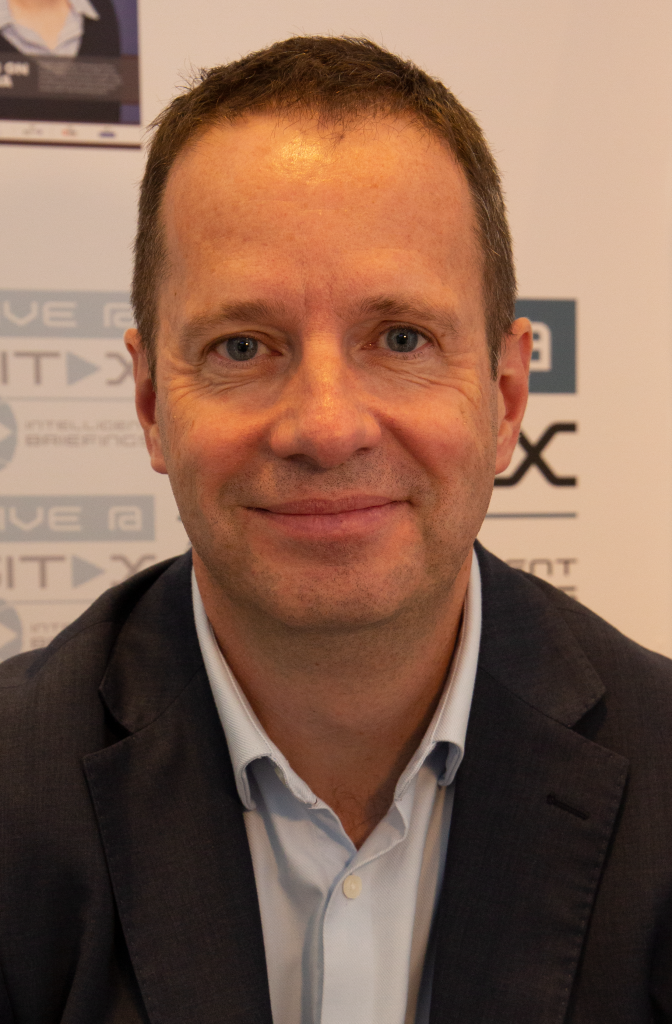Ordnance Survey is the national mapping agency for Great Britain, with over 200 years of experience in location services. However, in recent years, the company has started helping other countries realise their own data. Paul French, Chief Commercial Officer of Ordnance Survey, speaks to us about how the enterprise is making moves in the Middle East by helping the region make use of its location data.

Can you tell us more about Ordnance Survey, its mission and history?
Ordnance Survey has been around for over 200 years. We’re the national mapping agency for the UK, which means we have real history and expertise with the application, collation and usage of location data. Our job is to help the UK Government, businesses and general consumers to get the most out of location data and mapping.
What conversations are you expecting to have at GITEX?
So, it’s really important to think about and talk to people about the work we are doing in the UK and how we are helping governments and businesses internationally with their location data. We travel a lot internationally and we do quite a lot of work in the Middle East to help partner clients understand their location data and how to make the best use of that for their people.
Why are you participating at GITEX this year?
GITEX is a really important conference for us as we’re able to meet our existing clients, but also form new relationships.
It’s also about explaining what we do as a business, helping people to understand a little bit more about Ordnance Survey, what we do in the UK, how we’ve helped the UK make the most of location data and how we can do the same internationally.
What region-specific work is Ordnance Survey doing within the Middle East?
In the Middle East, we are currently working with the Dubai Municipality. We’ve worked with them for several years now. Over the first couple of years, we helped them understand the location data they have access to, how they can make the most of that and how they can interpret that data for the best use of their citizens. Dubai intends to be the happiest city on Earth and it’s our job to help them achieve that.
In Saudi Arabia, we’ve built a relationship with the National Real Estate Registration Services Company (NRARSC). Our job there is to help them understand the use of land in the Kingdom. We’ve been helping them establish a strategy for the creation of land parcels and land ownership, with an emphasis on aiding the citizens of Saudi Arabia to register their land. Clear ownership of land is a key part of stimulating the economy in Saudi Arabia, which makes land data an important infrastructure strategy for the Kingdom.
Can you explain the complexity of the data collection process across this region?
There are lots of different aspects to it. There’s how you survey the country, such as recording video imagery of the country and how it changes over time.
One of the important things we do is also now work with Earth observation data, which is satellite data and how you interpret it. Also, by mapping the country, it helps in understanding how things change over time.
It also can be useful in terms of proving sustainability initiatives – which is a key focus for the Middle East. So, understanding what’s happening to the land, to the ownership of land, to the buildings, is important for current sustainability initiatives and seeing how they can improve over time.
How does this work reflect your work within the UK?
It’s about taking the best of what we’ve done in the UK and trying to apply that internationally. But it also depends on what our clients are looking for. It’s our job is to help them with the various services that we provide.
We have expert advisory services – consultancy – where we come in and work out what a country or region is wanting to achieve. We help with connectivity, so making use of data for the best application sustainability.
We also have an innovation service. We have one in the UK, where we work with a start-up community to help start-ups make use of location data. We can do that internationally. So, we help international governments set up their own innovation centres.
Can you tell us more about your partnership with the Dubai Municipality and why this was needed?
Our job is to apply data in the right way so that Dubai Municipality can understand what it has, how we can improve its infrastructure, and how we can help make Dubai the happiest place on Earth.
We’re helping them to apply location data to develop the city, such as how it might reroute its traffic and how emergency services can get places quicker. Really, there are lots of different ways that we help Dubai Municipality make use of location data, but it’s always about helping the people of Dubai.
Can you tell us more about the Geospatial Service Centre and how it is delivering geospatial services within Dubai?
We’ve worked with them to make better use of the data they have access to. We’ve also been helping them interpret that data and apply it the right way – that’s the real focus for us, it’s about applying the technologies to create the best use of that location data for the future.
What advice would you give to governments looking to innovate and carry out an effective geospatial strategy?
I think it’s about understanding how location can help governments. We all need to use location – we use maps in our daily lives. The more that those governments can make use of that location data, then they can apply it in different ways to help their citizens and to grow their economies and communities. So, it’s very much about understanding the requirements of different countries. Those requirements will vary according to where they are in the world and what problems they face and our job is to help them understand how location data can solve those problems.




